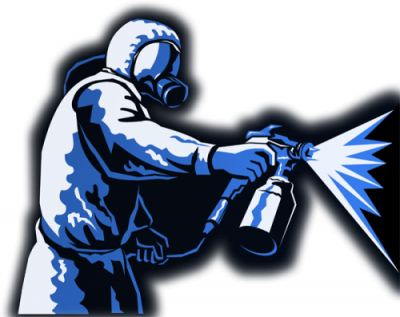5 Apr 2017

When I ran manufacturing companies, there was one visitor who was guaranteed to get me worried. Was it the HSE? No, we knew we were compliant with all the relevant legislation. Was it BSI auditors? No, we never got anything more than a few minor NCRs. The Fire Officer perhaps? No, we knew we had robust procedures for this.
It was our insurer’s auditors visit that worried us the most.
I understand that it is necessary for insurance companies to help manufacturers reduce risk and often that can be a positive thing, but often manufacturers are held to ransom to make changes. For example, a company may be 100% compliant with current HSE regulations, but this is not enough for the insurer. They want extra safeguards, extra health checks, extra equipment to ensure they minimise the risk of a loss. And the justification for this work is the veiled threat that if it is not in place then an insurer “may not cover a future claim”.
So where does that leave a person like me, running the business? I am 100% compliant with the required legislation in a particular area, but because the insurance company sees a perceived future risk, they threaten that “future claims may not be paid”. So, I am painted into a corner- I cannot risk some massive future work health claim against the company, possibly running into hundreds of thousands of pounds, without having insurance guaranteed to cover it. I cannot be exposed to the ‘possibility’ of non-payment of a future claim. Insurers are dictating a H&S policy that is often far more stringent than even the toughest H&S legislation.

In the end, at one of my companies, we did more work on compliance with these ‘insurance standards’ than for any other external agency or audit. It ended up dictating operational policy on more than one occasion. For example, in one of my factories, I had a paint spray booth. We were fully H&S complaint with all the relevant ventilation, our operators wore the right PPE and we completed occupational health checks (lung function tests) on a regular basis. Our insurers decided that we weren’t doing enough lung function tests or doing them on enough people, in most cases people who never even went into the paint area. The cost of all the extra work was huge and prohibitive. I had a Hobson’s choice – comply with the insurer or risk a massive future health-related claim against the company. Fortunately, Hobson gave me a third option – after a cost assessment we decided it was cheaper to shut down that part of the operation and sub-contract it then pay for all the extra compliance. Fortunately, we were able to redeploy staff and no one lost their job, but our costs went up and we lost the control of that part of our operation.
I know that insurers keep getting hit with claims for industrial injuries and worker’s health issues. I understand that over the decades, manufacturers haven’t always looked after their people as well as they should. There have been some terrible examples of huge health issues relating to asbestos, hearing loss and many others, and I do not underestimate their impact on people’s lives and families. I believe whole-heartedly in protecting workers and sending them home in one piece every night with no lasting damage. However, the current seedy culture of insurance claims against companies is almost a scandal. Most long-standing manufacturing companies have experienced the hearing loss sharp practice – inviting ex workers from the mills of Yorkshire and Lancashire to the pub on the lure of a free pint for a somewhat dubious hearing check and a no-win-no-fee offer from a solicitor for hearing loss.
But insurers now seem unable to think about anything but the next big health issue, even in H&S compliant companies.

